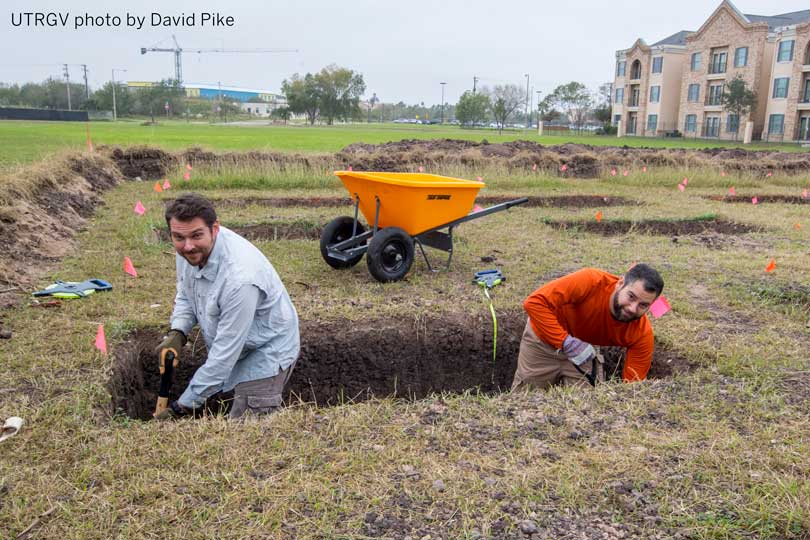By Jessica Domel
Multimedia Reporter
To help its students fulfill their dreams while also helping communities across the nation, the University of Texas Rio Grande Valley (UTRGV) has added a new major to its offerings this year.
Starting this fall, students may now pursue a bachelor of science in Sustainable Agriculture and Food Systems.
“This is a very interdisciplinary program. Our goal with this is to give them a holistic view of agriculture and food, and how societies work to produce food, distribute food and feed people,” Dr. Chris Gabler, assistant professor in the School of Earth, Environmental and Marine Sciences at UTRGV, said in an interview with the Texas Farm Bureau (TFB) Radio Network.
All students in the program will learn about the sources and production of food, where it comes from, how it is produced and how it gets to consumers.
“We also emphasize the distribution and delivery of food, the mechanisms it takes, the path from farm to table and so on,” Gabler said. “We want everybody to learn the importance of how food shapes society and public health.”
Before students pick a specialized track, the program encourages students to think about agriculture at a systems level including production, distribution, policy, government and the social side of food and agriculture.
“The classes that are in the core actually span five colleges,” Gabler said. “There’s not another interdisciplinary program around that offers as many courses from the colleges—the College of Science, the College of Liberal Arts, Business and Entrepreneurship and even the College of Health Affairs.”
There will be four tracks students can follow in pursuing the major.
They are: agriculture and ecology, food and health, food and society and business and policy.
The agriculture and ecology track focuses on issues like soil science, pest management, environmental management, conservation biology and genetics.
“It’s important to note that none of our tracks are an agronomy degree,” Gabler said. “It’s very much interdisciplinary. This is not a pure production science course, even in the agriculture and ecology track.”
The food and health track focuses on issues related to human nutrition and health related to food like diabetes, obesity and other diseases.
Issues related to sociology and anthropology are studied in the food and society track, as well as history and political science.
The business and policy track is geared toward the economics, policy and entrepreneurial side of food and agriculture like managing a farm, restaurant or distribution system.
Students pursuing the new major will not spend all their time in the classroom. Instead, they’ll head to the field their junior year.
“We want them to go out into the field, so to speak, and that could mean literally a field or a food kitchen, distribution plant, a local NGO (non-governmental organization) that does work related to hunger, a policy group or maybe even a bank that offers small loans to farmers,” Gabler said. “We want them to go out and get involved in one way or another.”
In the field, students will be encouraged to ask questions, solve a problem and figure out what that entity might need to better serve themselves or the community.
During their senior year, the students gather together to share what they learned with one another in a non-discipline-specific way. Guests from the community will also share their insight and the importance of what they do.
“We want them to talk about and really put their heads together and decide what were the broad themes that everyone saw regardless of whether they were working on a farm, working in a lab or food kitchen,” Gabler said.
The hope is the students will begin to find solutions to some of the issues the agriculture and food industries face, while also helping communities in the Rio Grande Valley and across the nation.
“Not only are we training the next generation of farmers and ranchers in the Rio Grande Valley and elsewhere, because they’ll go on from the Valley and go other places, hopefully we’ll draw students from afar to be participating in this program. So far, we are,” Gabler said. “Even those that don’t themselves go into production or go into food distribution or something related to health and nutrition of food, by virtue of them

